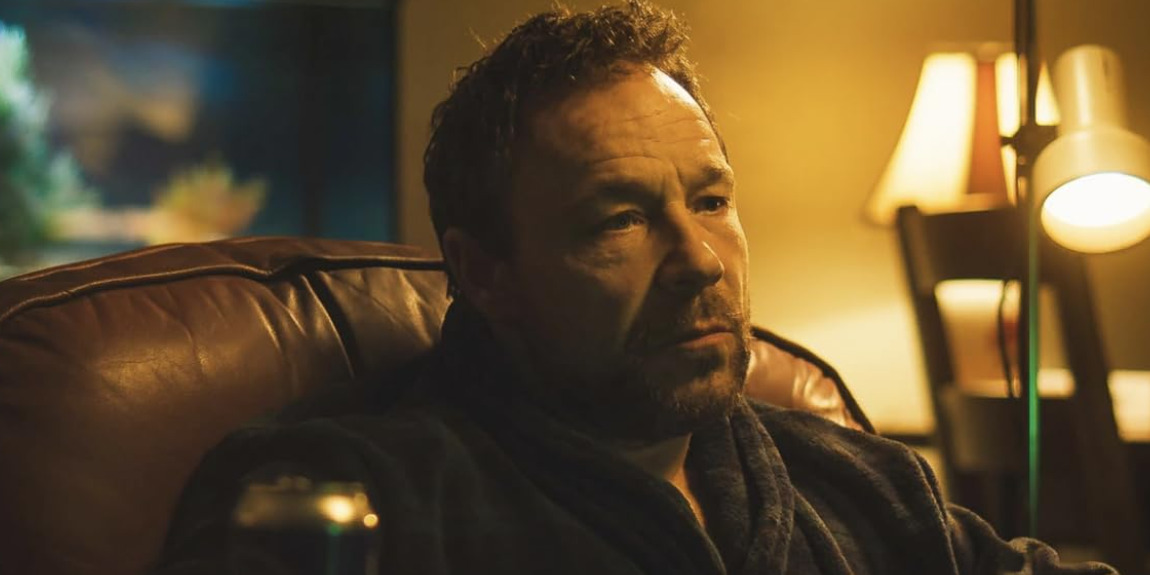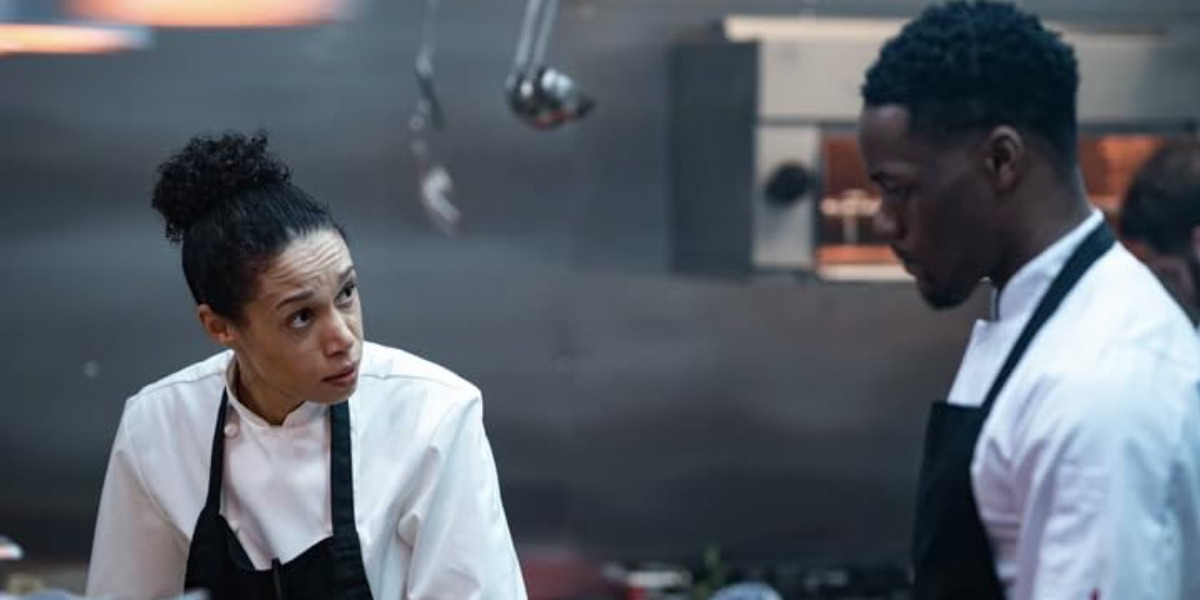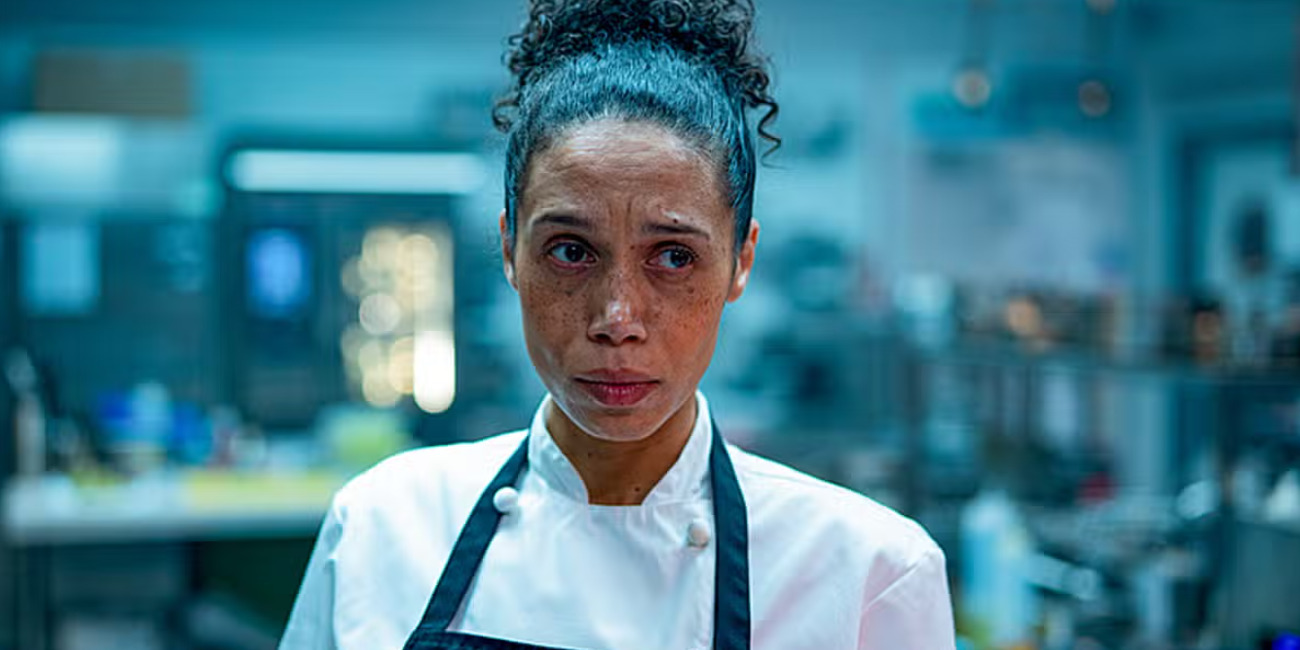BBC’s drama thriller show, ‘Boiling Point,’ transports the viewers into the frenzied, fast-paced lives of the kitchen staff behind the scenes at an up-and-coming restaurant. The show follows Carly, who undertakes the challenging venture of starting a new restaurant, Point North, taking some of her co-workers from her old place of employment. However, the stress of starting a new business and the difficulties of regular life clash with the restaurant’s success, littering Head Chef Carly and her team’s paths with multiple obstacles.
A notable fixture in the genre of “chef dramas,” ‘Boiling Point,’ delves into the uniquely taxing setting of a restaurant’s backroom, highlighting the stories of people in the hospitality industry. As such, through numerous characters, ranging from pastry chefs Jamie and Emily, the wait staff, Billy and Robyn, to others like Kit and Jake— each character brings a different, diverse addition to the overall storyline. However, how much of this storyline is actually based on reality?
Boiling Point: Andy Jones and Philip Barantini
‘Boiling Point’ is a continuation of the eponymous 2019 short film and the 2021 feature-length film that followed. All three works share the significance of Andy Jones, head chef of Jones & Sons, as a central character within their narrative. Even though the show breaks the mold and employs Andy in only a secondary role, it still maintains his instrumental influence over the storyline. As such, the real-life relevance behind Andy Jones and his worldview naturally bleeds into the show’s narrative, infusing realistic elements and themes into the tale.

Andy Jones’ connection to reality remains two-fold. On one hand, the character shares his name and profession with real-life Andy Jones, owner of the actual Jones & Sons restaurant in Dalston. However, on a deeper level— outside of surface-level similarities— the on-screen Andy Jones is loosely based on Philip Barantini, the director and writer of the film, ‘Boiling Point,’ who is also a co-creator of the show. Barantini’s professional life has been filled with numerous undertakings, ranging from projects wherein he has acted, directed, wrote, or produced. Interestingly, his ventures have also taken him to the restaurant industry, where he has worked for around a decade in numerous kitchens, from cafes and pubs to Michelin-starred restaurants.
As a result, Barantini has a first-hand personal experience of life behind the kitchen doors. Furthermore, the filmmaker also shares Andy’s experiences with alcoholism and the sobriety that follows. Consequently, Barantini molded Andy’s character in his own image from the beginning when ‘Boiling Point’ started out as a short film. The filmmaker discussed the same with The Book of Man while speaking about his movie and said, “I’ve been sober for almost seven years now, but during my time in kitchens, when I was drinking and doing all that, I was in a dark place.” As such, Andy Jones and his experiences— the building blocks of ‘Boiling Point’ and its continued narrative— sport notable basis in reality.
A Product of The Creators’ Real-Life Experiences
Around a year after the successful release of the ‘Boiling Point’ film, BBC reached out to its creator, Barantini, to discuss the possibility of turning the film into a TV series. By then, the filmmaker was already in conversations with his collaborators about delving back into that universe with a potential sequel. As such, the stars aligned, and the ‘Boiling Point’ series saw its inception. From the get-go, Barantini and his co-writer James Cummings decided to include Stephen Graham, who embodies Andy’s character, in the show’s development as a creator.

Thus, the project gained a few more writers, such as Nathaniel Stevens, Alex Tenenbaum, and Dan Cadan, while retaining the other original creative voices behind its predecessor. For the same reason, the sense of realism that initially shaped the film carried over to the series, creating a fictionalized narrative with real-life influences. Furthermore, creator Cummings, who also worked in the restaurant industry— in the front of the house— poured his own set of real-life experiences and anecdotes into the expanding on-screen narrative.
Additionally, the series also brings its own distinguishing factor as Carly sees a promotion to the story’s protagonist, bringing her own personalized storyline to the project’s center. Barantini spoke about the differences that came along with the decision and said, “I wanted Carly to be the opposite of that [Andy Jones]. That is not how she wants to run her kitchen. That is not how she wants to treat her staff. There’s still that old-school mentality of shouting. I think that is dying out, but it is still there a little bit. But I wanted Carly to be much calmer, even if she is still under immense pressure.”
Consequently, the show retains the sense of realism that Barantini and his creative team introduced in the original short and feature-length films by drawing from the creators’ real-life experiences. Moreover, through a number of perspectives, the narrative gets to explore the toll such a frantic industry takes on individuals’ mental health. As a result, it shines a light on the real-life statistics of the hospitality profession that conclude that 4 out of 5 individuals within the industry experience one mental health crisis in their career. Ultimately, even though the characters and the details of the show remain fictionalized, they sustain significant roots in reality.
Read More: Best True Story Movies on Hulu


You must be logged in to post a comment.